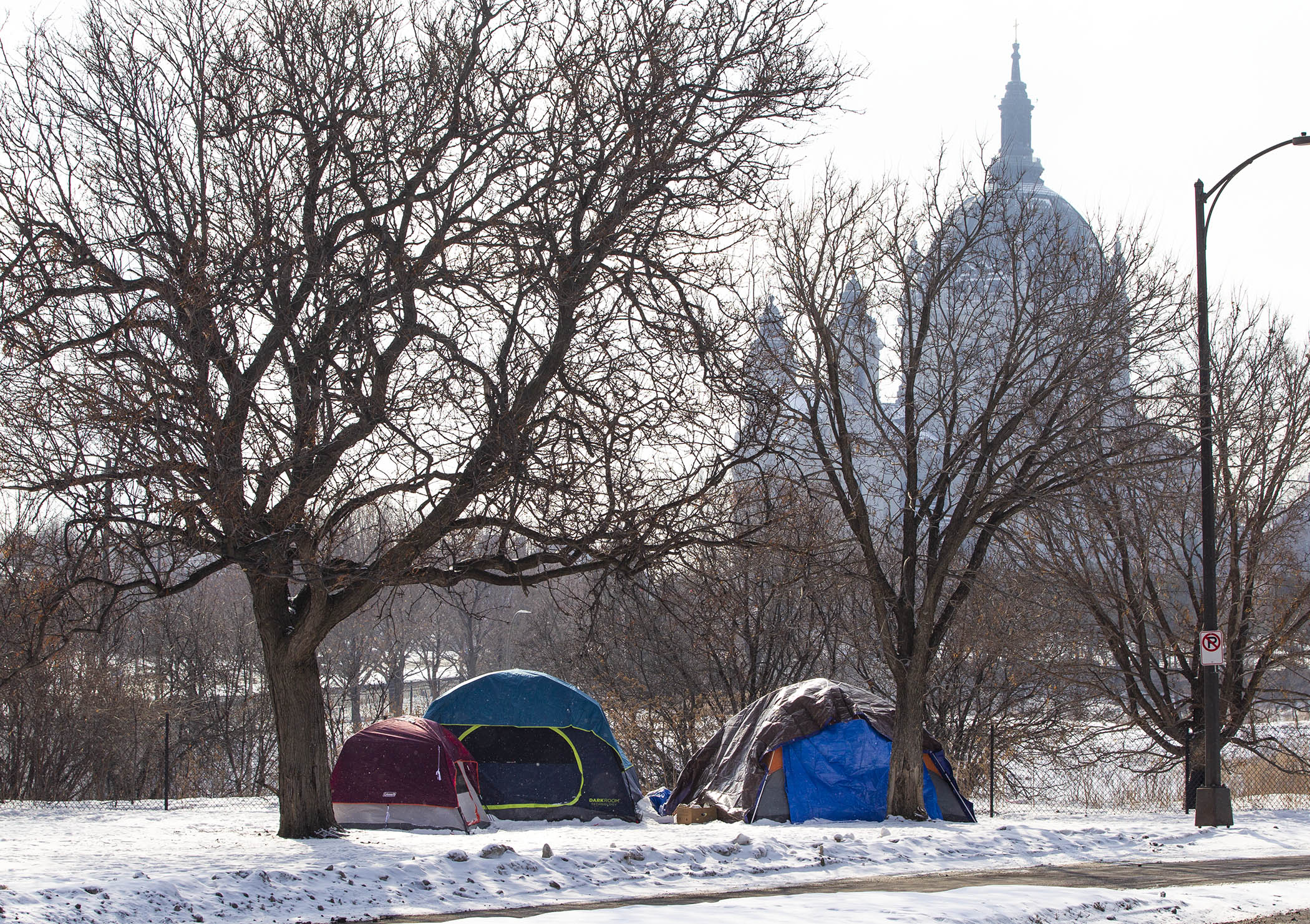Proposed grant program would provide $75 million to help emergency shelters provide for MN homeless

Minnesota has an expanding need to expand shelter for the homeless population in the state.
Sponsored by Rep. Aisha Gomez (DFL-Mpls), HF3090 would appropriate $75 million in fiscal year 2023 for the development, improvement or expansion of emergency shelter facilities.
The bill was approved on a 7-4 party-line vote Wednesday by the House Preventing Homelessness Division and referred to the House Human Services Finance and Policy Committee. There is no Senate companion.
“This is consistently one of the top requests that we hear from our emergency providers, from our frontline people who are working day to day with those experiencing homelessness in our communities, is that there isn’t enough space,” Gomez said. “It’s not just that. It’s also that there are places that are inadequate.”
The Minnesota Interagency Council on Homelessness reported earlier that while homelessness dropped by 5% in Minnesota from 2014-2020, the rate of unsheltered homeless has risen 145%.
According to Tikki Brown, assistant commissioner for children and family services at the Human Services Department, there were 2,000 Minnesotans experiencing unsheltered homelessness statewide in 2020. The 2021 data will not be available due to the COVID-19 pandemic.
“If we can get a pretty significant chunk of money to this in this moment when we have a surplus, we could really make moves on this issue,” Gomez said. “So, this is a really good use of onetime dollars which are some of the dollars that we have. I’m really hopeful that we can come together to acknowledge that this is the moment that we need to fill this gap that we have had for decades.”
Grants would be available to cities, counties, tribal governments and non-profit organizations, as well as housing and redevelopment authorities. The Human Services Department would be required to prioritize grants that would increase shelter capacity or improve current shelter facilities.
Up to $10 million per project would be available per grant.
“We know that a ton of money was dumped into this space over the last couple of years and I think we need an accounting of that,” said Rep. Anne Neu Brindley (R-North Branch). “What happened with it? What problems did it solve? What problems did it not solve in the midst of all of this? I think we are constantly making proposals to make changes, but we still don’t know what we need to know to move forward on so much of this stuff.”
Related Articles
Search Session Daily
Advanced Search OptionsPriority Dailies
Speaker Emerita Melissa Hortman, husband killed in attack
By HPIS Staff House Speaker Emerita Melissa Hortman (DFL-Brooklyn Park) and her husband, Mark, were fatally shot in their home early Saturday morning.
Gov. Tim Walz announced the news dur...
House Speaker Emerita Melissa Hortman (DFL-Brooklyn Park) and her husband, Mark, were fatally shot in their home early Saturday morning.
Gov. Tim Walz announced the news dur...
Lawmakers deliver budget bills to governor's desk in one-day special session
By Mike Cook About that talk of needing all 21 hours left in a legislative day to complete a special session?
House members were more than up to the challenge Monday. Beginning at 10 a.m...
About that talk of needing all 21 hours left in a legislative day to complete a special session?
House members were more than up to the challenge Monday. Beginning at 10 a.m...